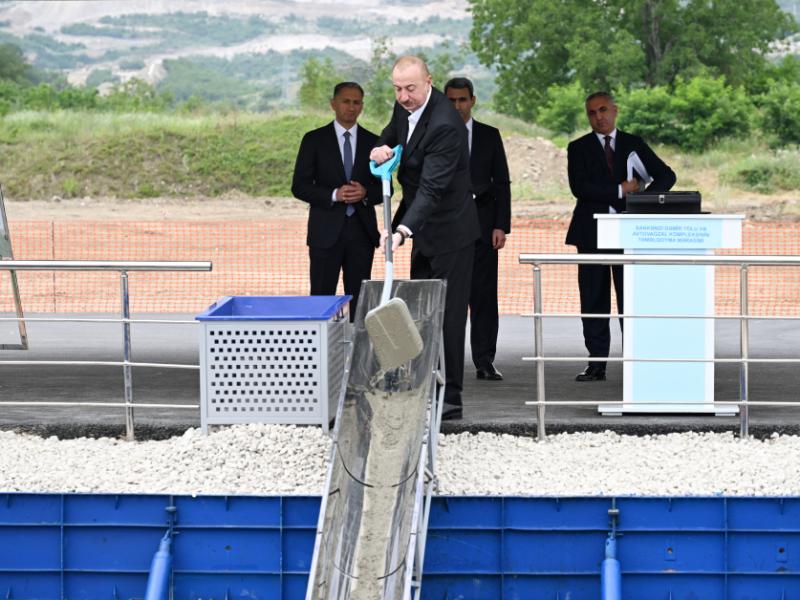Foundation stone laid for Khankendi Railway and Bus Terminal Complex

On July 3, President of the Republic of Azerbaijan Ilham Aliyev laid the foundation stone for the Khankendi Railway and Bus Terminal Complex.
Rashad Nabiyev, Minister of Digital Development and Transport, and Rovshan Rustamov, Chairman of Azerbaijan Railways CJSC, briefed the head of state on the planned works and the “Aghdam-Khankendi railway” project.
The Aghdam-Khankendi railway line, an extension of the Barda-Aghdam railway, spans 28 kilometers (34.7 kilometers including sidings). The design work for the railway, which includes four bridges, five overpasses, three pedestrian crossings, two drainage pipes, and other infrastructure, has been completed. The project envisions constructing three stations - Asgaran and Khojaly stations, and the Khankendi Railway and Bus Terminal Complex - along with engineering structures, bridges, overpasses, and crossings for vehicles, pedestrians, and agricultural purposes. The project is scheduled for implementation between 2025 and 2026.
Design work for the Khankendi Railway and Bus Terminal Complex has already begun. The complex will cover an area of 6.4 hectares. The five-story facility will include two railway platforms and 12 bus stops. The building will house a waiting hall, ticket counters, a medical point, a mother-and-child room, shops, restaurants, administrative and meeting rooms, a children’s entertainment center, an open terrace, and recreational areas.
The railway section of the complex is designed to serve 800–1,000 passengers daily, while the bus terminal will accommodate 1,000–1,200 passengers per day.
The Aghdam-Khankendi railway was originally constructed in 1979 under the initiative and leadership of National Leader Heydar Aliyev. The National Leader consistently emphasized the development of Karabakh, prioritizing the establishment of railway lines in the region. The opening of the Baku-Yevlakh-Khankendi railway significantly accelerated the socio-economic and cultural development of Karabakh.



